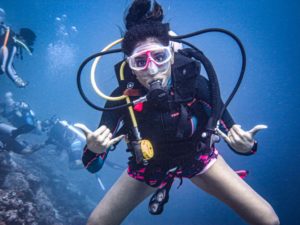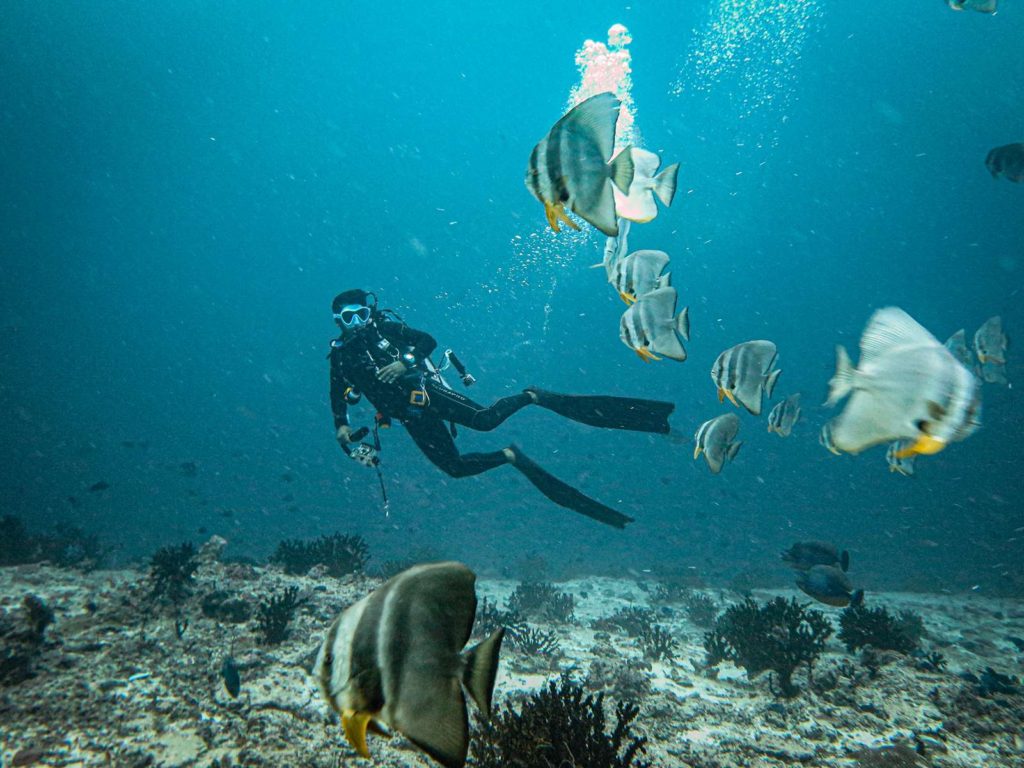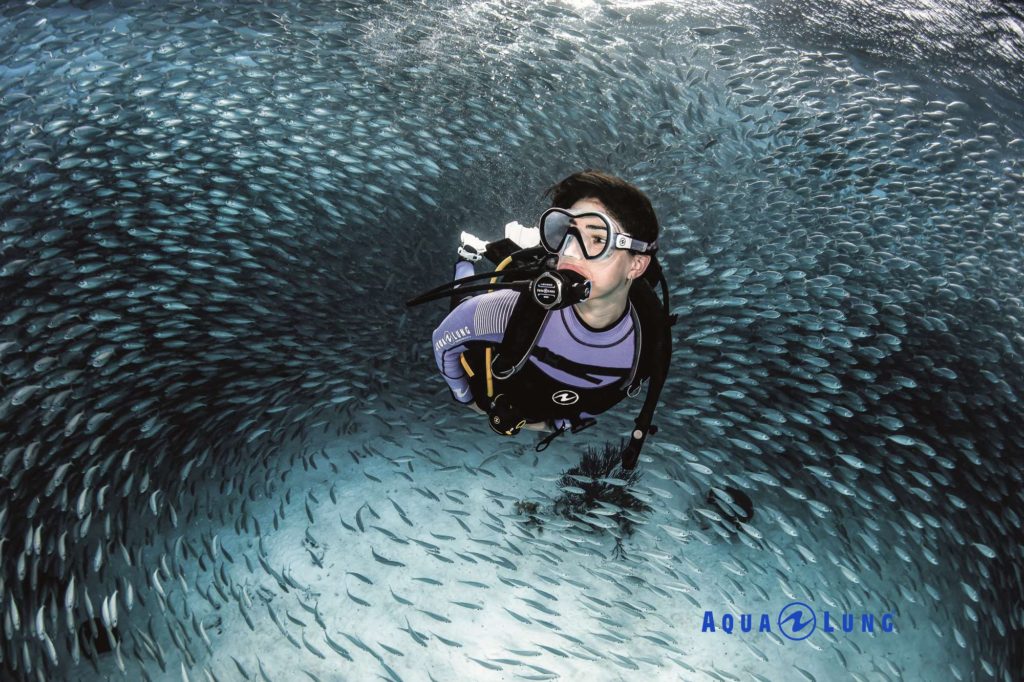
Being a responsible scuba diver is important wherever you are diving. But it’s even more so in India because of our dense population. The great news about being a responsible scuba diver is that it has a major feel-good factor, and together we can make a difference and raise awareness – all of which leads to healthier dive sites and the ongoing development of scuba diving in India. Here are some tips to responsibly scuba dive in India, how they help in your underwater adventure, and how they can help you in your daily life too!
1. Get certified to scuba dive in India
If you want to scuba dive, get certified! This not only increases your personal safety underwater, it also means you’ll learn about how to dive to limit your impact on the coral reef and marine life. This in turn means that dive sites stay preserved for you and other divers to enjoy, dive after dive. If you are not certified to dive, sign up for the PADI Open Water Diver Course – you can even start learning online from home now! Once you are a certified diver, you’ll be recognized as such by dive centers all around the world. Yes, you will have more places to explore and more buddies to meet and dive with!
2. Don’t touch coral reef or marine life
Did you know that corals are living animals? You need to treat corals with the same respect you would give other creatures. Touching corals can not only lead to nasty stings, but you can actually infect the reef. Contamination from humans can be deadly for coral reefs, and for the fish living there. Hard coral is often covered with a thin layer of live tissue which protects it. When touched by humans, this layer gets damaged. The basic rules of sustainable scuba diving are: (1) don’t touch the corals and (2) don’t take any corals or shells out of the ocean.
3. Be in control of your movements
Having good control underwater comes through proper training and supervised practice. If you are not a certified diver, sign up for a Discover Scuba Diving program. You’ll learn some basic skills to keep you and the reef safe, followed by an amazing dive in the ocean with an instructor. If you want to get certified, take the Open Water Diver Course and commit to learning to scuba dive in India. Want to develop your diving skills further? Why not take the PADI Advanced Open Water Diver course? Being in control of your movements makes you look more accomplished underwater and you’ll also be ensuring the longevity of the reef by not making contact with it. As an ‘in control’ diver, beginners will look up to you and follow your example.
4. Maintain good buoyancy
Divers with good buoyancy control are looked up to wherever they dive. Be a good role model with excellent diving skills, and you’ll gain the respect of your buddies in no time. Good buoyancy control also means that your air will last longer so you can dive for longer. You’ll be able to avoid crashing into a reef or making contact with the bottom. Also, you’ll also be able to maneuver better, which means you can get closer to the marine life and corals. You’ll reduce your stress and anxiety levels in the process as well. Say hello to more relaxing and comfortable dives.
5. Invest in the right equipment
Scuba diving in India is still a relatively new activity. There’s yet an element of ‘cool-ness’ attached to it. You have to have the right equipment if you want to look and feel great underwater. And it has to fit correctly! Over-sized gear or a too-snug fit are both uncomfortable and unsafe. Ask us about which scuba diving equipment you should have and how it should fit for the best performance. If your gear isn’t the right size for you, you’ll struggle with buoyancy and are more likely to damage the reef, since your focus remains on your gear and not on your surroundings. All your scuba gear needs to be tucked away. Nothing should be trailing or dangling, as it can cause to damage to the reef or even lead to entanglement.
6. Don’t pollute the water
For the sake of both land and marine species, it is increasingly important today to be responsible and try your best to reduce your environmental footprint. Never throw trash, even organic, in the ocean. Pick up any trash you see while diving, and others will follow your example. Role model good behavior at home too. Try to reduce your use of plastic by using eco-bags for your shopping and think twice about buying items that are overly packaged. In India, we generate a huge amount of plastic waste. Be a trailblazer and get active on social media about what you are doing to reduce your own plastic consumption.

7. Educate yourself and others
The more people know about something, the greater their interest in protecting it. Learn about corals and marine life and share your findings with others. Not only will you impress them with your knowledge, but you’ll also help create a new generation of educated Indian scuba divers who, like you, want to protect our amazing underwater world.
8. Be an ocean advocate
Being a scuba diver is not just about what we do when we are diving in India. It’s about our behavior at home too. Be a diver everyday by becoming aware of global issues such as climate change and overfishing. Join online conservation groups and be a leading voice on social media. We all know the power of people, so help start a wave of awareness and change!
9. Promote scuba diving in India
Share you underwater pictures and talk with your friends, family and neighbors about your adventures and experiences when scuba diving in India. The more Indian divers there are, the more powerful our collective voice becomes.
Are you ready to put these points into action? Get started by booking a PADI scuba diving course, or your next dives now! Contact us via our online contact form or send us an email to: holidays@planetscubaindia.com
— BY SARAH WORMALD, PADI


